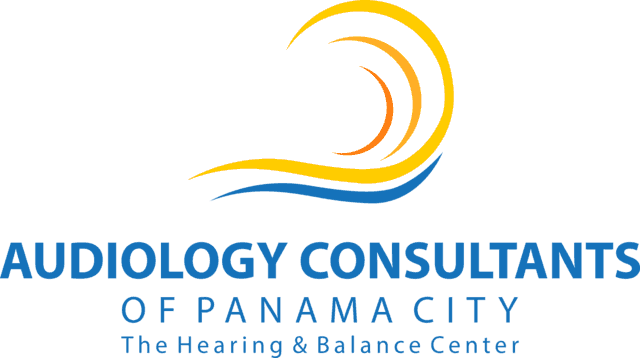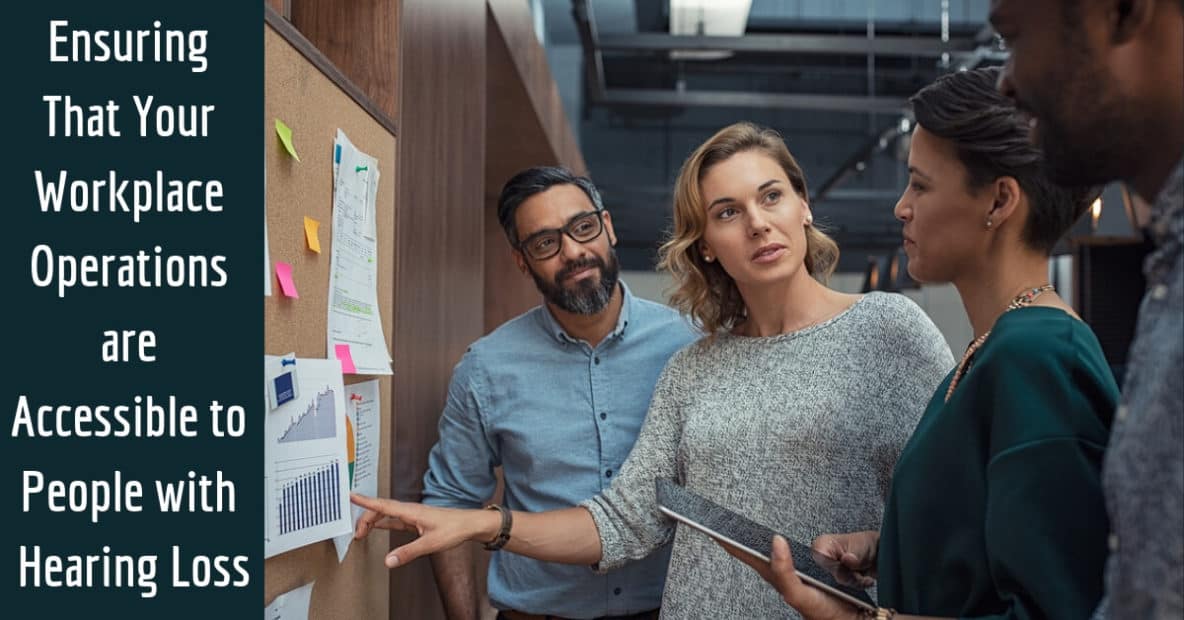- Using Hearing Aid Accessories for Enhanced Listening - May 6, 2025
- Practical Tips for Managing Daily Challenges With Tinnitus - April 8, 2025
- Signs Your Hearing Aid Battery Needs to Be Replaced - March 13, 2025
EWe understand that business owners, employers and board members want their meetings and events to be accessible to everyone – regardless of any participant’s hearing abilities. While you have the best intentions, you may not know exactly how to accommodate your employees or stakeholders with a hearing impairment. Luckily, there are a multitude of interventions that can be put into place to help ensure your company operations are accessible to those who experience hearing impairments or deafness.
The Who, The What, and The Where
If you are in the business of making your company more accessible, it may be difficult to determine where to begin.
The Who:
In most cases, implementing strategies to help include those with hearing impairments into day-to-day operations or special events needs approval from the CEO. Taking a top-down approach is a good way to help ensure accessibility, because once the CEO understands the benefits of accessibility, she can train her staff and will be more likely to approve necessary expenses for implementation. After this, all employees should be trained on best practices for including those with hearing losses – regardless of their position in the company.
The What:
Employee trainings, and strategies/technology to implement best practices for company-wide accessibility.
The Where:
All company events from daily briefings, to conference calls, to stakeholder meetings to large events should be accessible to those with hearing loss and those who are deaf.
Possible Accommodations for Hearing Loss in the Workplace
There are a few different interventions that can be put in place to help those with hearing impairments. It is important to understand that not every intervention will work for every person with hearing loss.
Sign Language Interpreter
This is usually the go-to intervention for gigantic company-wide events or presentations. While this is a great option, most people do not realize that not every person who is deaf actually understands American Sign Language. Some became deaf later in life and never learn the language. It is important to know your demographic before hiring an ASL translator for your event.
Communication Access Realtime Translation (CART)
Communication Access Realtime Translation, otherwise known as CART, is a great intervention for those with any degree of hearing loss. CART is basically just real-time closed captioning. This type of intervention is controlled by a recorder who types what the speaker is saying, as they are saying it. This helps everyone, regardless of the degree of hearing loss, be able to access the information as it is being presented. Captioning can be projected across a large screen behind the actual speakers or it can be sent directly to attendees’ smartphones, depending on the type of technology your company chooses.
Hearing Aid Loops
Some buildings are already equipped with hearing aid loops. Places with hearing aid loop capabilities are equipped with a loop cable around the perimeter of the room. This cable picks up the signal of a microphone being held by the speaker. Hearing aid wearers with a “Tcoil” setting on their hearing aid are then able to switch on their hearing aids and receive the signal wirelessly, and directly to their aids. Most hearing devices (even quite old models) are equipped with Tcoil capabilities.
Personal Amplification Devices
This one is quite simple, and can be used in smaller and more intimate settings where CART or a sign language interpreter may be unnecessary. There are many options for these types of set-ups, from a microphone that is passed from speaker to speaker, to one mic in the middle of the table that streams sound directly to the hearing aid wearer.
An Employee with Hearing Loss
If you experience hearing loss and need some accommodations in place in order to fully participate in the workplace, it is important that you express these needs right away. It can be scary, but it is important to know that your employer cannot retaliate against you for making these requests and is actually mandated to provide them to you. It is your federally protected right to have the reasonable accommodations that may be necessary for your to be successful at work if you experience hearing loss.
Visit Us at Audiology Consultants
Are you experiencing changes in your hearing? Don’t let hearing loss stand in your way of doing what you love! Contact us to schedule an appointment for a hearing test and consultation.


